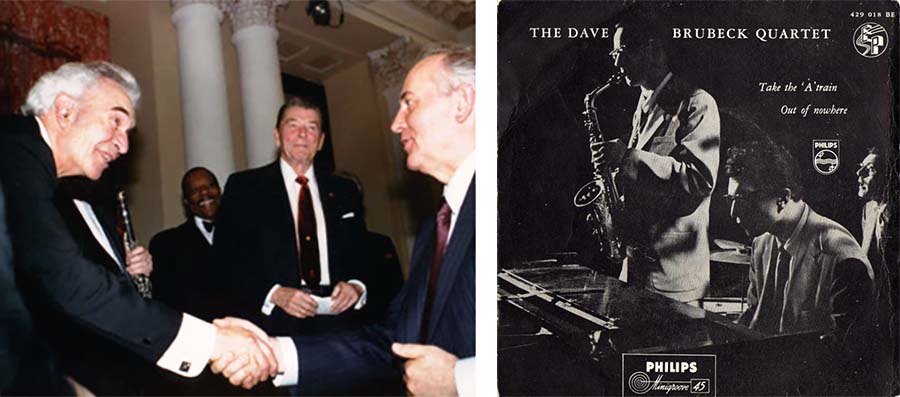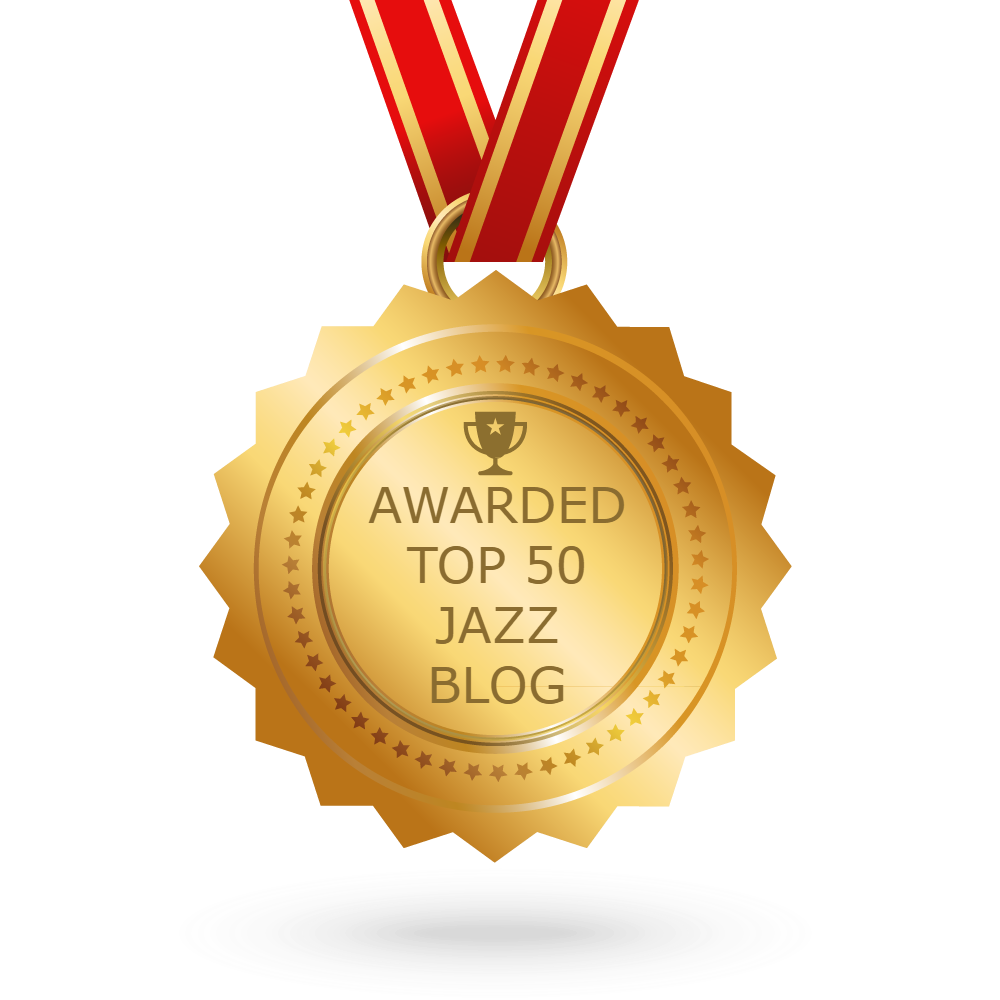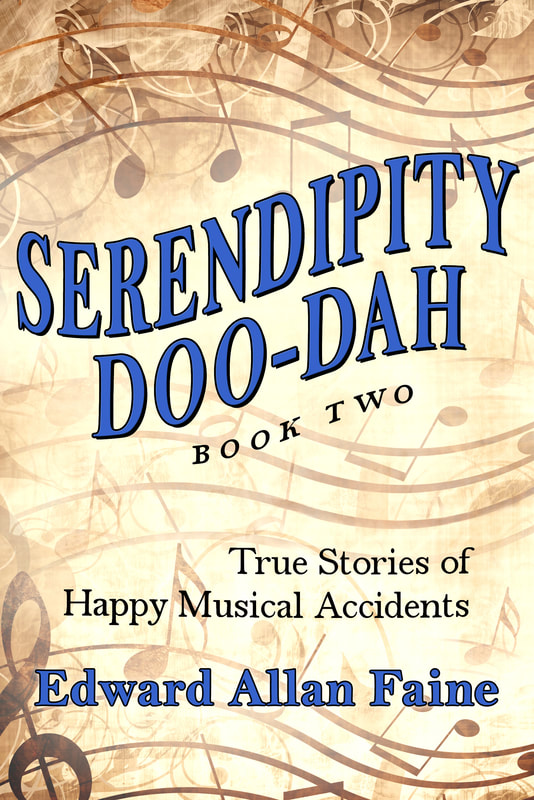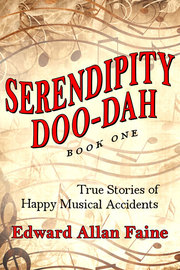In May 1988, President Ronald Reagan traveled to Moscow to meet with Soviet leader Mikhail Gorbachev to begin the fourth nuclear disarmament summit held in the previous three years.
Accompanying him, at the request of First Lady Nancy Reagan, was the Dave Brubeck Quartet (Bill Smith, clarinet; Randy Jones, drums; Chris Brubeck, electric bass; and guest bassist Eugene Wright from the 1960s classic quartet). The group was brought along to entertain the Soviets at Spasso House (the American Embassy) according to diplomatic protocol.
The big day came. The quartet gathered in the Spasso Ballroom along with Soviets and Americans all mixed together at the tables.
As Brubeck’s manager, Russell Gloyd, later recounted:
You could just see and feel that nobody was talking to anybody. [Officials] made the obligatory speeches and Dave was introduced. Then, it was like out of a Hollywood B-movie. All of a sudden, everyone just came alive. Dave started in and the first tune he played was “Take the ‘A’ Train.” It brought down the house. People were up and cheering. I’ll never forget [Senator] Bob Dole—he looked like a little kid. He had his one good hand raised above his head like he was at a football game. He’d turn around, and there was a Soviet general, loaded with medals, doing the same thing. They looked at each other like, “You like Brubeck? I like Brubeck! We like Brubeck!” It went like that for twenty minutes. Dave played the greatest single twenty-minute set of his life.
Right after the performance was over, Dave and I were rushed over to the hotel where all the international television people had set up shop . . . When Dave walked through, all these hardened old-hands came out and applauded as he headed for CNN. Bernard Shaw . . . asked Dave a few questions about his reaction to the situation. Dave said it was the most incredible moment in his life. Shaw turned to Dave and said, “I have to tell you, on the part of everyone here that watched you, there was not a dry eye among us when you started playing “ ’A’ Train.” We realized we couldn’t have had any greater ambassador from the United States than you.”
The next day, at the Bolshoi, [Secretary of State] George Schultz . . . comes over, and hugs Dave and says, “Dave, you helped make the summit. And today everyone on both sides was talking about it. They found common ground. You broke the ice.”[1]
For the time, there could not have been a better American song than “‘A’ Train” to open a jazz set in what Reagan called the “evil empire.” Duke Ellington and his signature tune were a known quantity in the Soviet Republic.
The maestro and his orchestra had toured the Soviet Union in November 1970. Even more significant, countless Soviets surreptitiously listened to Willis Conover’s daily jazz show on the Voice of America with its “‘A’ Train” opening theme.
As for Brubeck’s well-known tune, his manager later detailed, “When Dave started playing ‘Take Five’ . . . Gorbachev’s translator . . . was poking Gorbachev and saying, ‘See, I told you they’d play it!’ And Gorbachev was mimicking the drum solo with both hands.”[2]
Wrongly or rightly, Ronald Reagan has since been credited with ending the Cold War—with the assist credited to Dave Brubeck and Duke Ellington.
- Fred M. Hall, It’s About Time: The Dave Brubeck Story (Fayetteville, AR: The University of Arkansas Press, 1996), 52–53.
- Ibid., 53.




 RSS Feed
RSS Feed